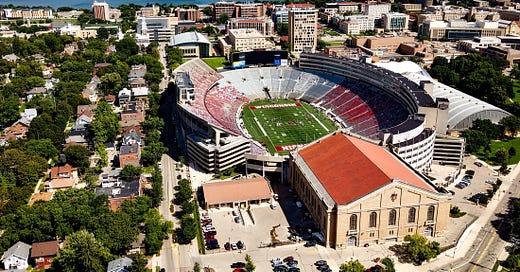UW-Madison Stalls on Promised Conservative Professor Role
The university agreed to create the position in a 2023 deal with the state legislature
The University of Wisconsin-Madison said it would create an “endowed chair to focus on conservative political thought, classical economic theory, or classical liberalism” as part of a deal with the state legislature in 2023. However, as of April 2025, it still had not announced the appointment of a chair nor confirmed concrete steps toward its creation.
In an email to The Madison Federalist earlier this month, university spokesman John Lucas said he had no “new info on this topic.” He did not respond to questions about the deadline for the search process, whether the university has made substantial efforts to seek philanthropic support, who is leading the search, or if the university has made any other efforts to increase ideological diversity in its faculty.
One source told The Madison Federalist there had been recent progress in the search process, but Lucas did not respond to a follow-up email sent last week.
Political science professor Alexander Tahk told The Federalist via email that there has been “some effort to reach out to potential donors,” but the university “had not secured the necessary donations” to create the position, as far as he was aware.
“Some relevant departments were asked to provide examples of the types of candidates to consider for the chair” and “there's been at least one potential candidate brought in for a talk.”
He also observed, “There's been an uptick in interest over the last month,” but speculated that this may be due to ongoing budget negotiations with the legislature. The College Fix notably published an article on the university’s search in February.
Tahk said he is “not aware of specific efforts to bring in more ideologically diverse faculty or speakers aside from any efforts related to this endowed chair.” However, “there have been some efforts to at least have conversations about how to improve ideological diversity.”
“At some point, there needs to be more faculty and speakers outside campus orthodoxy. It can be hard to distinguish efforts to lay the groundwork for that from efforts to stall or obfuscate. It also doesn't matter what the intent is if we never get past that step.”
He believes some of the “uptick in talk about ideological diversity” could be related to national politics. UW-Madison has seen scrutiny from the Trump Administration and is currently facing separate investigations for racial discrimination and antisemitism.
Nevertheless, Tahk pointed to programs, such as Deliberation Dinners and Bridging the Divide, as moves in the right direction. He also believes that many in the university administration, including Chancellor Jennifer Mnookin, are sincere in their desire for increased ideological diversity.
“How many people fall into that group, how much effort they're willing to put forward, how much resistance they'll face, and how much can be imposed top-down without broader recognition of the problem are separate questions.”
“I haven't seen anything to show for it so far in terms of any actual increase in ideological diversity on campus. Absent that, ever changing, good intentions don't mean much,” he said.
“In short, a few in the university administration are starting to talk the talk. I'm still waiting to see if anyone can walk the walk.”
In 2024, Tahk performed an analysis that found “over 99% of political dollars contributed by UW faculty went to Democrats and left-wing groups over the past decade.” In addition, UW-Madison lost two outspokenly conservative professors, Ryan Owens and Richard Avramenko, last year.






